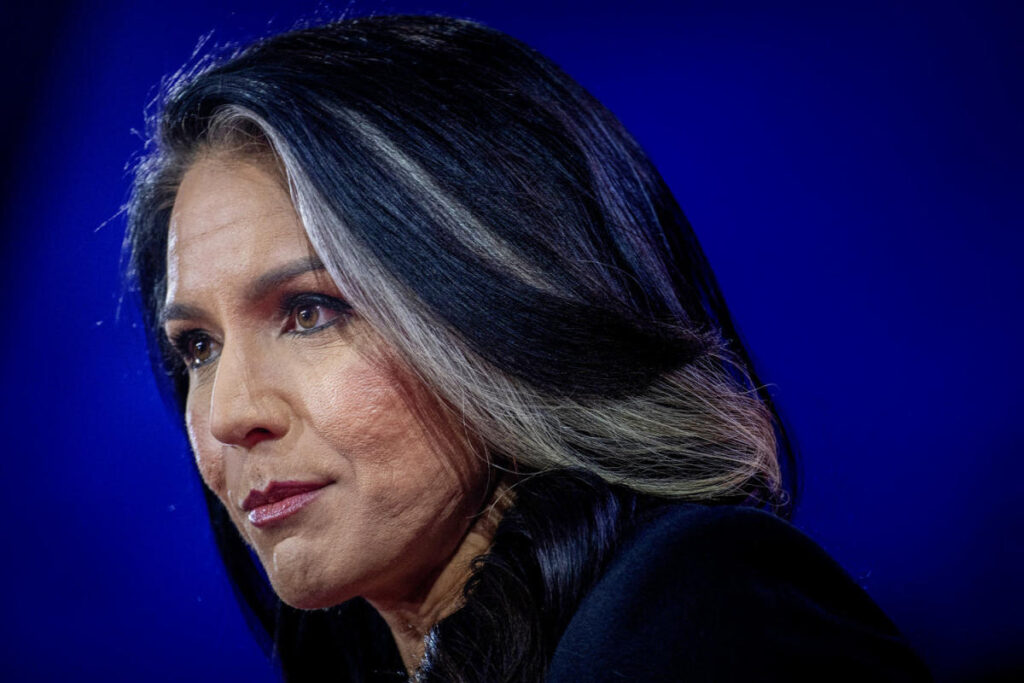In the spring of 2018, a tense atmosphere enveloped the House Foreign Affairs Committee as a Syrian defector, known only as “Caesar,” prepared to disclose the atrocities of the Assad regime in a private briefing. Lawmakers were particularly anxious about the presence of Democratic Representative Tulsi Gabbard, who had previously defended the Syrian government and even met with Assad in 2017. Given the defector’s fear of reprisal, aides from both parties took measures to ensure his identity remained hidden, concerned that Gabbard might leak information about him. This incident underscores widespread apprehensions regarding Gabbard’s actions and statements about Syria, raising serious questions about her commitment to safeguarding intelligence and the well-being of vulnerable individuals.
As President-elect Donald Trump considered Gabbard for a high-ranking intelligence position, her past actions came under intense scrutiny. Critics, including former diplomats and intelligence officials, expressed disquiet over her established patterns of behavior, which seemed to echo narratives promoted by authoritarian regimes, including Syria and Russia. Nearly 100 former officials signed a letter urging for closed-door hearings to conduct a thorough review of her qualifications, fearing her biases could undermine her ability to deliver unbiased intelligence to the President and Congress. Gabbard’s tense relationship with established foreign policy norms and her past interactions with controversial actors raised alarms about her potential influence on U.S. national security strategies during a crucial period marked by upheaval in the Middle East.
Gabbard’s political journey began with great promise; she was heralded in 2012 as a talented newcomer to the Democratic Party, having served in the Iraq War. Initially seen as composed and measured, her perspectives on Syria soon began to diverge sharply from mainstream assessments, particularly during the Syrian civil war. Gabbard’s sympathetic stance towards the Assad regime raised alarms among colleagues, especially as the humanitarian crisis deepened and allegations of severe government-led atrocities emerged. This shift was evident in her questioning of a Syrian defector’s assertions about the regime’s brutality, prompting concerns about her grasp on the situation and the genuine impact of her political stances.
Despite witnessing the devastation firsthand on a congressional trip near the Turkish-Syrian border in 2015, Gabbard remained unconvinced by the narratives surrounding the regime’s actions. A notable incident involved her questioning of Syrian children about the perpetrators of their suffering, revealing a concerning lack of awareness regarding the conflict dynamics at play, including the absence of an air force on the part of ISIS. These experiences solidified the doubts of numerous observers, including those who had facilitated her exposure to critical narratives from individuals impacted by the ongoing violence. The revelations of her meeting with Assad in 2017, coupled with her subsequent defense of the Syrian leader’s narrative regarding chemical weapon attacks, further compounded these concerns, prompting serious questions about her judgment and motivations.
In the wake of Trump’s transition team announcing Gabbard’s nomination, responses from political figures revealed a stark divide. While some Republicans expressed support, others were cautious, echoing concerns raised by former intelligence officials about her track record of adopting narratives aligned with authoritarian regimes. The potential implications of her appointment served as a focal point for debate, particularly as questions arose regarding how she would handle sensitive intelligence matters, especially in cooperation with allies in the “Five Eyes” intelligence alliance. Detractors like former U.N. Ambassador Nikki Haley highlighted Gabbard’s previous remarks on NATO and her alignment with voices of adversarial states, framing her as ill-prepared to manage vital threats to U.S. interests.
Ultimately, Gabbard’s political and diplomatic behaviors revealed a complex interplay between her military service, her contentious views on foreign intervention, and her controversial stances regarding U.S. foreign policy. Critics contended that her responses to events in Syria reflected a troubling alignment with regimes notorious for human rights abuses, undermining the credibility necessary for any intelligence leadership position. Allegations of naiveté in her interactions with regime figures and her questioning of longstanding U.S. intelligence assessments underscored a potential risk of her straying from the role expected of national intelligence leaders, fostering an tumultuous atmosphere in the immediate lead-up to her anticipated confirmation hearings. Thus, the discourse surrounding her nomination illustrated wider tensions within U.S. foreign policy debates, particularly as the nation reassessed its strategic priorities and relationships in turbulent geopolitical landscapes.

